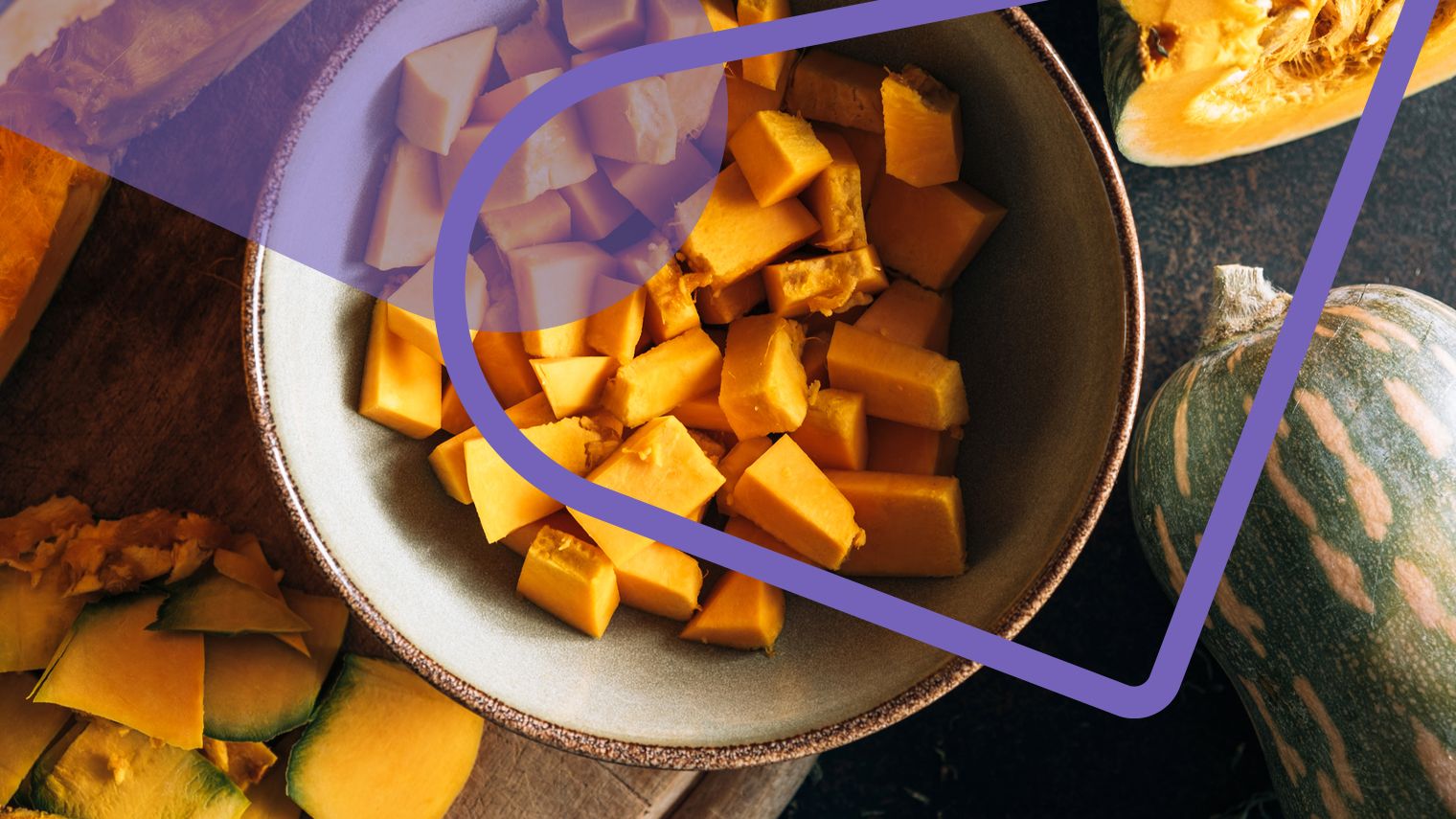5 Reasons to Love Pumpkin When You Live with IBD
October 31, 2022
Content created for the Bezzy community and sponsored by our partners. Learn More

Photography by Natas?a Mandic?/Stocksy United
Fall’s favorite gourd is packed with nutritional benefits.
It is officially the most wonderful time of the year — the season when leaves begin to fall and pumpkin-flavored everything takes over the shelves of the grocery store. I personally love adding pumpkin to my autumn recipes and can never seem to get enough.
Not only is fall’s favorite orange gourd delicious, but it is also packed with vitamins and nutrients. More specifically, pumpkin is a great source of nutrients for people with inflammatory bowel disease. It truly is a win-win!
Here are a few reasons to love pumpkin if you have inflammatory bowel disease (IBD).


1. Boosts immune system
Vitamin C is an important nutrient for a healthy functioning immune system. People with IBD often have a deficiency in vitamin C due to lower consumption of fresh fruits and vegetables. This can put us at higher risk for osteoporosis — a decrease in bone mineral density. Since our bodies aren’t able to make vitamin C on their own, we have to consume it through food or supplementation.
1 cup of pumpkin contains 11.5 milligrams (mg) of vitamin C, or about 15% of the daily recommended allowance (RDA) of 75 mg for women and about 13% of the RDA (90 mg) for men.
2. May reduce inflammation
Beta carotene is the substance that gives pumpkin and other reddish and orange-colored produce their bright orange hue. Beta carotene is considered to be a provitamin, which means the body uses it to make a vitamin, in this case, vitamin A. Vitamin A plays a critical role in supporting a healthy immune system and maintaining mucous barriers in the body (including the gut).
In addition to helping the body produce vitamin A, beta-carotene has strong antioxidant properties that help protect the body from damage and disease. Its anti-inflammatory properties have been shown to reduce intestinal inflammation of human colorectal cells cultured in a lab. More research is needed to determine whether this promising effect carries over when people naturally consume beta-carotene.
3. Aids digestion
Fiber, both soluble and insoluble, is essential to keeping a healthy digestive system on track, and pumpkin, with 2.7 grams of fiber per cup, is an excellent source for both types.
Soluble fiber helps the GI tract to form solid stools, move them along for excretion, and slows the transit time within the colon. This can be helpful if you’re experiencing frequent diarrhea.
Insoluble fiber helps to bulk up the stool while also providing probiotics — a source of food for the good bacteria in the gut. Consuming dietary fiber can help people with IBD to maintain remission.
4. Keeps you hydrated
Did you know that up to 95% of pumpkin is water? People in an active IBD flare are at higher risk of dehydration, caused by the inflammation lining the colon. In the presence of inflammation, the colon is unable to absorb water, and instead, the water exits in watery bowel movements. In addition to consuming water, one creative way to stay hydrated is to consume foods high in water content, like pumpkin. You can even add it to a soup for a hearty, nourishing meal.
5. Eases muscle cramping
In an active IBD flare, you may experience frequent abdominal pain and cramping. Two nutrients — potassium and magnesium — may help to alleviate muscle cramping.
A cup of cooked pumpkin has a fair amount of magnesium (22 mg, or about 6% of the RDA) but is packed with 564 mg of potassium (about 22% of the RDA). If you experiencee abdominal cramping, consider adding pumpkin to your autumn menu.
Things to note
For the greatest benefit, I recommend avoiding pumpkin-flavored food and drinks made with refined sugar, such as pumpkin lattes, pies, cake, and cookies. There are very few nutrients left in these food products, and they can actually cause more harm than good.
Instead, I recommend consuming pumpkin in a form as minimally processed as possible. Try this recipe for a pumpkin smoothie from Ambitious Kitchen or this pumpkin pudding from The Honest Spoonful, instead of sugary products like pumpkin muffins or cookies.
When shopping for pumpkin, aim to purchase a fresh pie pumpkin or canned pumpkin puree. Don’t confuse this with pumpkin pie filling, which includes added sugar and additives. The only ingredient that should be in the can? Pumpkin.
The takeaway
Pumpkin can be incredibly beneficial — and delicious! — for people with IBD. Because of the high fiber content, make sure to consume it in moderation. To get the most nutritional benefits, avoid the pumpkin-flavored products that include added sugar and go for the real thing!
Medically reviewed on October 31, 2022


Like the story? React, bookmark, or share below:
Have thoughts or suggestions about this article? Email us at article-feedback@bezzy.com.
About the author